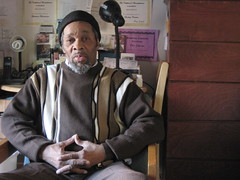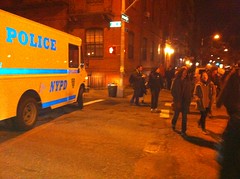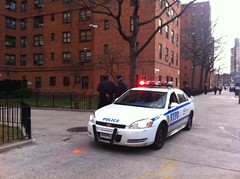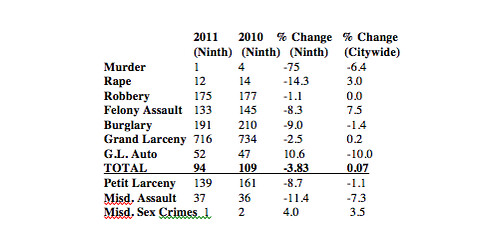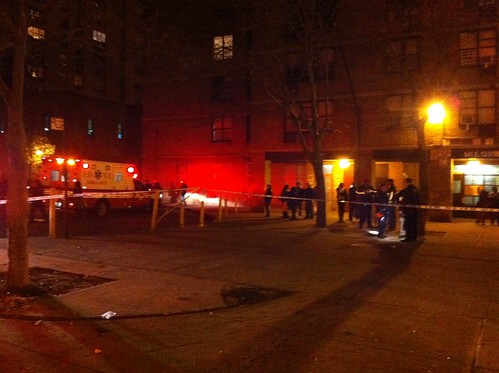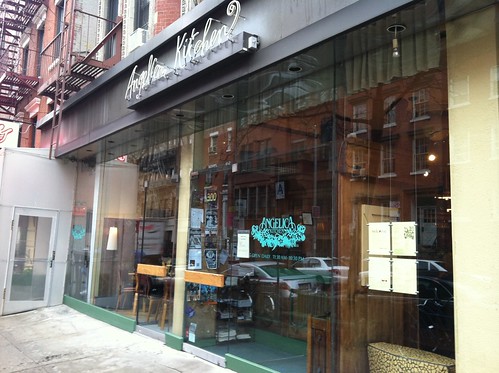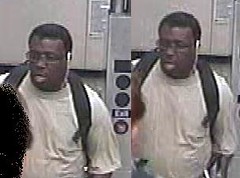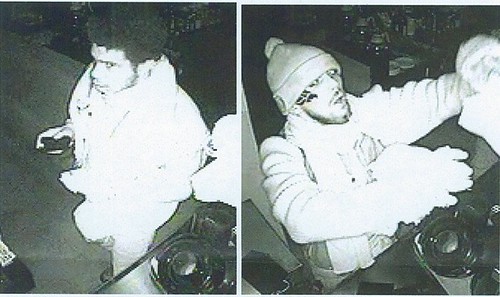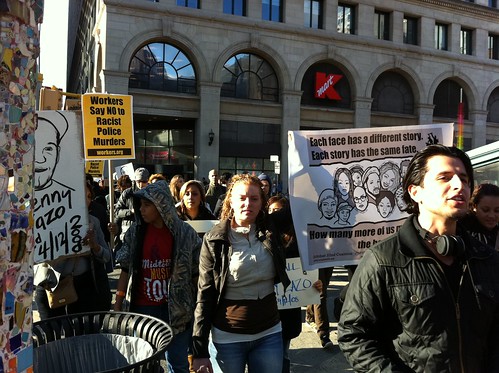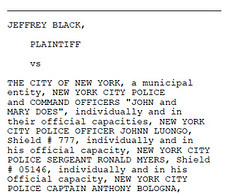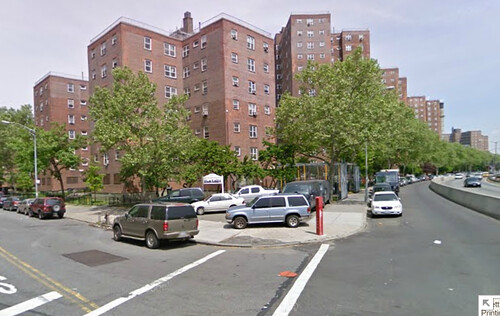In the East Village last year, blacks and Hispanics were stopped and questioned by the police more often than whites, according to newly released stop-and-frisk statistics and a street poll conducted by The Local. The neighborhood’s new Commanding Officer touts the effectiveness of the controversial policy, but some residents complain that it has been used to unfairly target minorities.
According to data obtained from the Police Department by the New York Civil Liberties Union and released yesterday, police officers stopped and questioned people in the Ninth Precinct (which covers the East Village) 3,614 times in 2011. Of those stopped, 1,113 were black, and 1,200 were listed as either “black Hispanic” or “white Hispanic.” Altogether, 63 percent of those stopped were either black or Hispanic – even though, according to 2010 census data, those groups made up just 33.1 percent of the neighborhood’s population. Just 28 percent of those stopped (about 1,033 people) were white, though 63 percent of East Village residents belonged to that race.
Those numbers are in keeping with an informal poll in which The Local surveyed 107 people, roughly half of them on Second Avenue, and half on Avenue C. Of 55 people approached at Second Avenue and Fourth Street, only three (six percent) said they had been stopped and questioned. On Avenue C and Fourth Street, 14 out of 52 people (about 27 percent) said they had been stopped and questioned.
During a conversation with The Local, Captain John Cappelmann, the new Commanding Officer of the Ninth Precinct, described stop-and-frisk as an “effective crime-fighting tool,” citing a Monday morning arrest in connection with a string of restaurant robberies in the neighborhood. He hypothesized, “If someone had seen one of the perps walking down the street the other day with a crow bar right before he crow-barred the window? You want to stop him before he commits the crime, right?”
But many East Village residents who spoke with The Local said they believed that stop-and-frisk was being applied selectively – a concern that last month prompted Community Board 3 to support a resolution, brought by Manhattan Borough President Scott M. Stringer, calling for the policy’s reform. Mr. Stringer, who spoke at a protest on Tuesday, has blamed the enforcement technique for “creating a wall of distrust between people of color and the police,” and is calling for a U.S. Department of Justice investigation into whether the Police Department is committing racial profiling. Read more…



